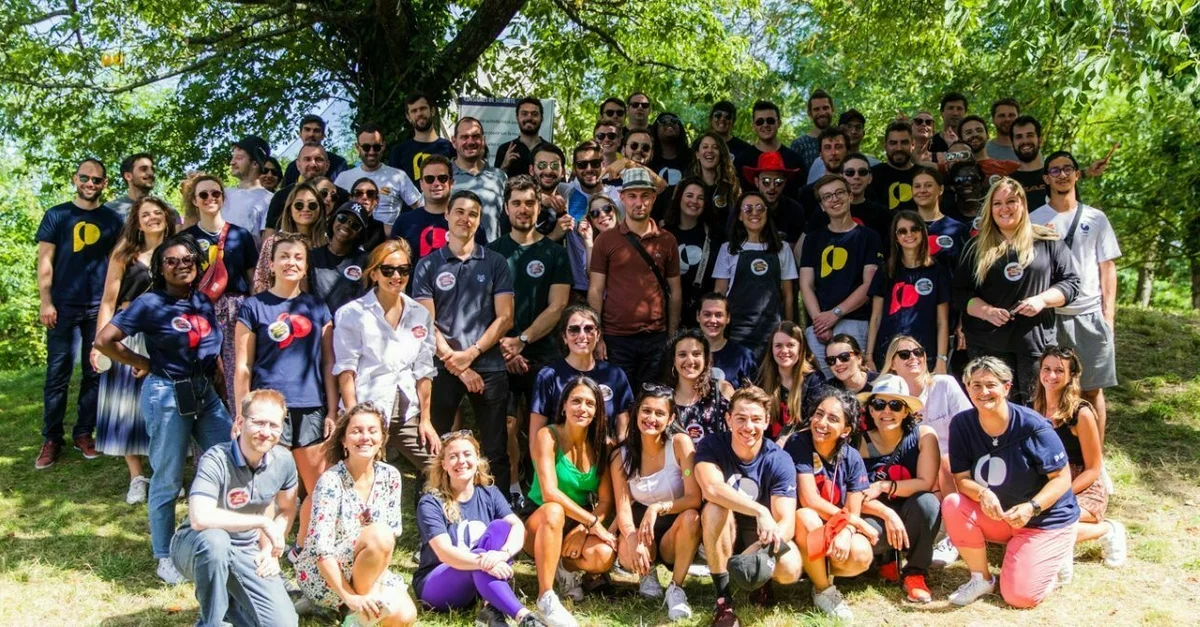Implementing a climate strategy in a global company
The case of CBTW
Reading time: 5-6 minutes
Reading time: 5-6 minutes

Implementing a climate strategy is a complex endeavour. However, complexity isn’t an excuse for inaction. It is crucial to break down the complexity of climate change and take steps to mitigate it.
Collaboration Betters the World (CBTW) is a global company delivering tech and business solutions. With over 3000 people in 21 countries worldwide, it is active in Strategy & Governance, Product Design & Growth, Software Engineering, Data Analytics & AI, Cloud & Enterprise Platforms, Cyber Security, Banking Technology Solutions, Smart Industrial Solutions, and Life Sciences Solutions.
CBTW is an example for enterprises looking to embed social and environmental responsibility into its core values. In particular, CBTW wants decarbonisation to be a pillar of its ESG strategy.
In this article, we will delve deeper into its approach to sustainability and how Tapio’s experts and platform are helping CBTW achieve its decarbonisation.
CBTW embarked on its decarbonisation journey in 2022, doing its first carbon report and committing to the Science-Based Targets initiative (SBTi). This commitment is a pillar of their ESG strategy. It consists of scientifically calculated goals for reducing greenhouse gas (GHG) emissions to help keep global temperature rise below 2°C compared to pre-industrial temperatures.
They published their second carbon report in 2023, and in 2024, they will continue implementing actions to reduce their carbon footprint and adhere to their commitment to Science-Based targets.
To maximise their impact, CBTW embraced both near-term and long-term science-based targets. In particular, but not only, they want to:
While these commitments are ambitious, CBTW approaches them with a methodical, step-by-step strategy. Thanks to an engaged team of collaborators, it illustrates that, with dedication, every goal becomes achievable.
CBTW knew from the start that to decarbonise its practices accurately, it needed to calculate greenhouse gas emissions. The first step for them was to prepare a carbon report, which came with several challenges. To accompany them in this mission, they chose Tapio’s experts and platform.
With a presence in 21 countries worldwide, CBTW encountered complexities in its data collection process due to non-unified data across countries and regions. Furthermore, data collection still needed to be established as a strategic priority for many employees.
To make data collection easier, CBTW and Tapio followed this process:
CBTW and Tapio quickly agreed on a common goal: to improve continuously. In the following years, we will optimise the data collection process to make even better data-based decisions.
Claudia Egavian, Sustainability Project Manager at CBTW, says, «We believe it’s essential to have accurate data for carbon reports. After all, we want to be able to take actions that are relevant to our business and not based on monetary data.»
To do so, CBTW will focus on two main missions.
Although most CBTW collaborators are already sensitive to environmental issues, involving them in the decarbonisation process required rethinking, as it wasn’t initially part of their designated tasks and roles.
To solve this, CBTW plans to embed sustainability in the operations by, for example, including climate strategy-related tasks in managers’ KPIs to federate a reduction strategy.
CBTW is committed to improving the data quality of its carbon reports. When it comes to data related to stakeholders, they often had to use monetary values instead of physical ones. By engaging directly with stakeholders, CBTW can improve the accuracy of its carbon report.
To do so, Tapio’s carbon expert, Colin Royer, has created a personalised sheet with recommendations and step-by-step instructions to optimise data collection with stakeholders and for each of the 19 sites. The goal is to replace monetary data with physical data as much as possible.
This will also help reach the SBTi engagement of having 44% of the value chain committed to the SBTi.
Ultimately, CBTW aims to make sustainability a fundamental part of its core values through initiatives driven both from the top down and the bottom up.
Yann Louise, chairman of the board of directors of CBTW, has long advocated for Corporate Social Responsibility (CSR) activities. However, when such decisions originate from top leadership, the challenge lies in ensuring that the entire organisation takes ownership of the project.
To do so, CBTW decided to build its ESG strategy on three pillars:
Currently, CBTW is collaborating with a mix of internal and external consultants to spread this vision throughout the company. Some internal consultants dedicate their time to the sustainability team, and in particular, Enrico Maset, ESG Officer ad interim and consultant responsible for Strategy and Innovation at CBTW, is helping implement the ESG strategy. The ultimate goal is for everyone within CBTW to find avenues to contribute to sustainability efforts.